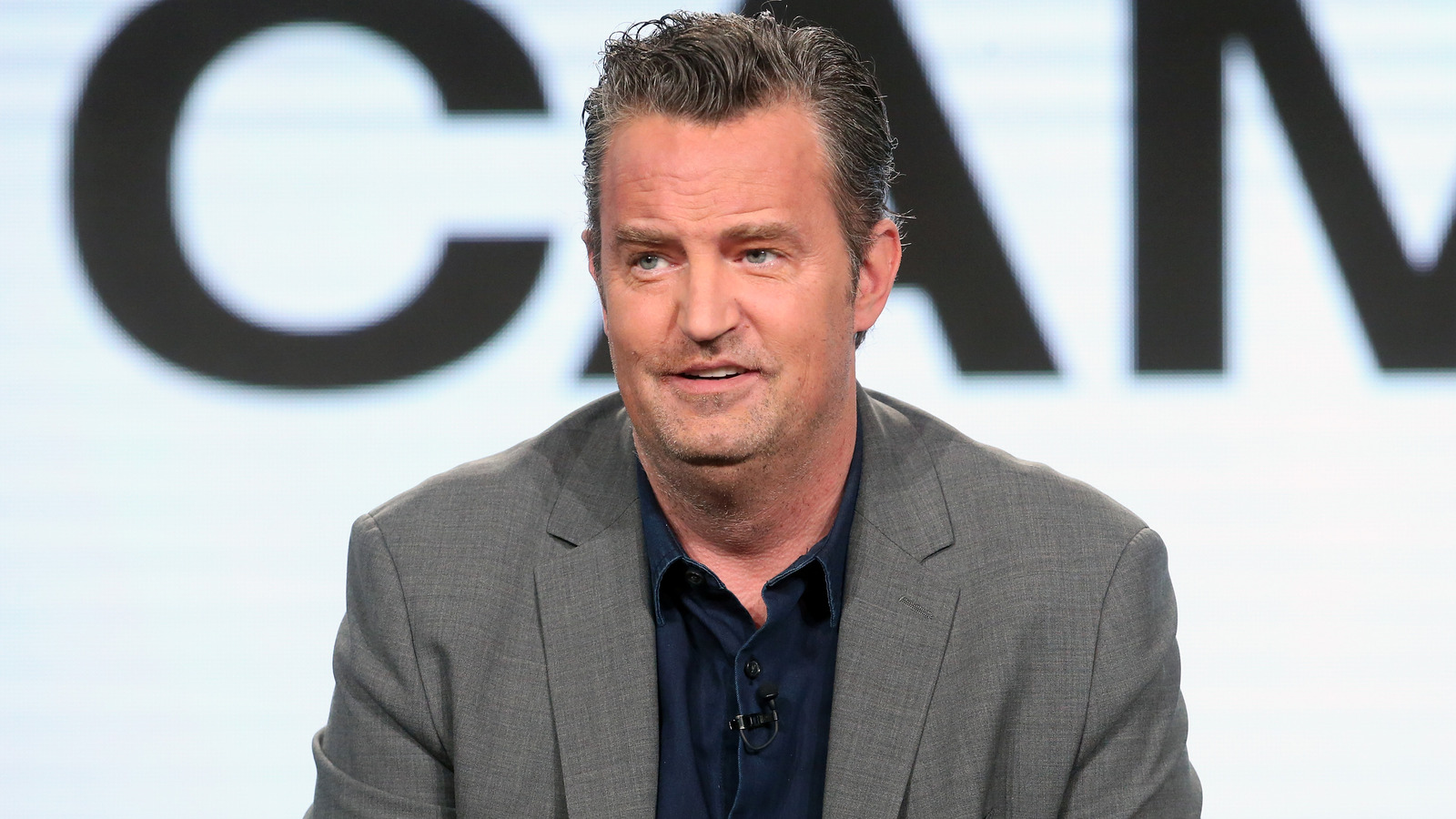Matthew Perry & Brooke Mueller: The Untold Story + Facts
Can two people battling personal demons find solace and lasting love in each other? The tumultuous relationship between Matthew Perry and Brooke Mueller is a stark reminder that even amidst fame and fortune, the struggles of addiction and mental health can cast a long shadow.
The narrative of Matthew Perry and Brooke Mueller is one that captivates, not for its fairy-tale romance, but for its raw portrayal of human vulnerability. Their brief marriage, spanning from 2011 to 2012, existed under a spotlight intensified by Perry's candid accounts of his battles with addiction and Mueller's own struggles with substance abuse and eating disorders. Though their union produced one child, the complexities of their individual challenges ultimately shaped their shared destiny.
The public fascination with the dynamic between matthew perry brooke mueller stems from the stark realities they faced, often played out in the full glare of Hollywood's unforgiving lens. Perry, celebrated for his role as Chandler Bing in the hit sitcom "Friends," has been remarkably open about his decades-long fight against addiction, a battle that began at the height of his fame. Similarly, Mueller, known for her acting roles and, perhaps more notably, her previous marriage to Charlie Sheen, has been vocal about her own journey through addiction and eating disorders. The intertwining of these personal battles within the context of their relationship created a story ripe with speculation and public scrutiny.
- Keira Knightley Natalie Portman Facts What Makes Them Great
- All About Is Lily Gladstone In A Relationship News Amp More
| Category | Matthew Perry | Brooke Mueller |
|---|---|---|
| Full Name | Matthew Langford Perry | Brooke Mueller |
| Birth Date | August 19, 1969 | August 19, 1977 |
| Birth Place | Williamstown, Massachusetts | Palm Beach, Florida |
| Occupation | Actor, Comedian, Producer, Writer | Actress, Socialite |
| Known For | Chandler Bing in "Friends" | Various acting roles, including "The World According to Jim" |
| Addiction Struggles | Alcohol, Prescription Drugs | Substance Abuse, Eating Disorders |
| Mental Health | Depression, Anxiety | Depression |
| Website | Matthew Perry Foundation | N/A |
The dissolution of matthew perry brooke mueller's marriage fueled intense speculation, with many attempting to pinpoint the exact reasons for their split. While some fingers pointed towards Mueller's ongoing struggles with addiction as a contributing factor, others suggested that Perry's own mental health challenges played a significant role in the breakdown of their relationship. The truth, as it often is in matters of the heart and mind, is likely a complex interplay of various factors, further complicated by the pressures of fame and public expectation.
The relationship between matthew perry brooke mueller, though relatively brief, became a focal point of media attention, amplified by Perry's battles with addiction and mental health, coupled with Mueller's experiences with addiction and eating disorders. Analyzing their time together reveals several critical components:
- Addiction: A persistent battle for both, significantly impacting their individual lives and relationship dynamic.
- Mental health: Perry's struggles with depression and anxiety, and Mueller's battles with depression, added layers of complexity to their relationship.
- Divorce: A highly publicized separation that underscored the challenges of navigating personal struggles within a marriage.
- Media attention: Intense scrutiny that amplified both their personal battles and relationship difficulties.
- Recovery: Individual commitments to sobriety and mental well-being, highlighting the ongoing nature of these journeys.
- Relapse: The ever-present risk and reality of setbacks in the recovery process, adding further strain to their relationship.
These intertwined elements profoundly influenced the narrative of Perry and Mueller's relationship. Addiction acted as a formidable adversary, exacerbating existing challenges and contributing to relational strain. Perry's acknowledged battles with depression and anxiety, alongside Mueller's own mental health concerns, introduced further complexities. The ensuing divorce, played out against the backdrop of relentless media attention, underscored the immense pressure they faced. However, amidst these trials, both Perry and Mueller demonstrated a commitment to recovery, embarking on individual paths toward sobriety and improved mental well-being.
- Discover Maye Musk Nationality From Canada To South Africa
- Jonathan Penners Survivor Legacy Why Hes So Famous
| Category | Matthew Perry | Brooke Mueller |
|---|---|---|
| Full Name | Matthew Langford Perry | Brooke Mueller |
| Birth Date | August 19, 1969 | August 19, 1977 |
| Birth Place | Williamstown, Massachusetts | Palm Beach, Florida |
Addiction, a multifaceted and chronic disease, exerts a powerful grip on the brain, disrupting its reward system and leading to compulsive behaviors. It is characterized by an uncontrollable need to use a substance, be it drugs or alcohol, despite the devastating consequences that ensue. This compulsion often overrides rational thought, personal values, and even the desire for self-preservation. The insidious nature of addiction often intertwines with underlying mental health disorders, such as depression, anxiety, and trauma, creating a complex web of challenges for those affected.
Both Matthew Perry and Brooke Mueller have bravely confronted their personal battles with addiction, their experiences serving as stark reminders of the disease's pervasive reach. Perry has been commendably transparent about his struggles with alcohol and prescription drugs, acknowledging the significant impact these substances had on his life and career. Similarly, Mueller has spoken candidly about her experiences with substance abuse and eating disorders, shedding light on the multifaceted nature of addiction and the challenges faced by women in particular.
The ramifications of addiction on the relationship between Perry and Mueller were undeniable. Perry's struggles with substance abuse led to a cascade of difficulties, including relationship turmoil, financial instability, and legal entanglements. Likewise, Mueller's own addiction contributed to turbulence within the relationship, creating a cycle of instability and uncertainty.
Despite these formidable challenges, both Perry and Mueller have demonstrated a resolute commitment to recovery, embarking on individual journeys toward sobriety and well-being. Perry has achieved significant periods of sobriety, a testament to his perseverance and dedication to overcoming his addiction. Mueller has also made commendable strides in her recovery, actively seeking treatment and support to manage her substance abuse and eating disorders. Their efforts underscore the possibility of recovery, even in the face of seemingly insurmountable odds.
Mental health, an essential component of overall well-being, encompasses the emotional, psychological, and social dimensions of an individual's state of mind. It profoundly influences how we think, feel, behave, and interact with the world around us. Mental health issues, ranging from anxiety and depression to more severe conditions like bipolar disorder and schizophrenia, can significantly impair a person's ability to cope with stress, maintain healthy relationships, and function effectively in daily life.
Matthew Perry and Brooke Mueller have both publicly shared their personal battles with mental health issues, contributing to a broader conversation about the importance of mental well-being and reducing the stigma associated with seeking help. Perry has openly discussed his diagnosis of depression and anxiety, shedding light on the challenges faced by individuals who struggle with these conditions. Mueller has also spoken about her experiences with depression and eating disorders, offering insights into the complexities of these mental health challenges and their impact on her life.
Mental health issues can have far-reaching consequences, affecting various aspects of a person's life, including their performance at work or school, their ability to form and maintain meaningful relationships, and their overall physical health. Untreated mental health issues can increase the risk of developing chronic physical conditions, such as heart disease, diabetes, and obesity.
Seeking help for mental health issues is a sign of strength, not weakness. There are numerous effective treatments available, including psychotherapy (talk therapy), medication, and lifestyle interventions such as exercise and mindfulness practices. Finding the right treatment approach often involves working collaboratively with a qualified mental health professional to develop a personalized plan tailored to individual needs and circumstances.
Perry and Mueller have demonstrated remarkable courage in sharing their personal stories about mental health, contributing to greater awareness and understanding. Their openness can inspire others who are struggling to seek help and break free from the cycle of silence and shame that often surrounds mental health issues. By sharing their experiences, they are helping to create a more compassionate and supportive environment for those who need it most.
Divorce, the legal termination of a marriage, represents a profound transition in the lives of the individuals involved. It is a complex process that carries significant emotional, financial, and social implications, particularly when children are involved. Navigating the legal and personal challenges of divorce requires careful consideration, open communication, and a commitment to minimizing harm, especially to any children affected.
- Legal Process: Divorce proceedings adhere to specific legal frameworks that vary by jurisdiction. The process typically involves filing a petition for divorce with the court, formally notifying the other spouse, and participating in hearings or mediation sessions. Ultimately, the court issues a divorce decree, legally dissolving the marriage and outlining the terms of separation, including property division, child custody arrangements, and spousal support.
- Emotional Impact: Divorce often triggers a complex range of emotions, including grief, loss, anger, resentment, and anxiety. Both spouses may experience feelings of sadness and regret as they navigate the end of a significant chapter in their lives. The emotional toll can be particularly challenging when there is unresolved conflict or a lack of closure.
- Financial Impact: Divorce can have substantial financial consequences, leading to significant changes in income, expenses, and assets. The division of property, including real estate, investments, and personal belongings, can be a contentious process. Spousal support, also known as alimony, may be awarded to one spouse to help them maintain their standard of living after the divorce.
- Impact on Children: Divorce can have a profound impact on children, potentially affecting their emotional well-being, academic performance, and social relationships. It is crucial for parents to prioritize their children's needs during this challenging time, providing them with consistent support, reassurance, and a stable environment. Co-parenting arrangements that minimize conflict and promote open communication are essential for mitigating the negative effects of divorce on children.
Divorce is a life-altering decision that should be approached with careful consideration and a thorough understanding of the potential consequences. It is essential to weigh the pros and cons, seek legal counsel, and consider the emotional and financial implications before initiating divorce proceedings. Engaging with a therapist or counselor can provide valuable support and guidance in navigating the emotional challenges of divorce and developing healthy coping mechanisms.
The unrelenting glare of media attention cast a significant shadow over the relationship between Matthew Perry and Brooke Mueller. Their personal lives became fodder for public consumption, scrutinized and dissected by tabloids, entertainment news outlets, and social media platforms. This constant exposure had a profound impact on their relationship, amplifying their challenges and creating an environment of intense pressure.
The relentless media coverage, while intrusive and often insensitive, inadvertently raised awareness about addiction and mental health issues. Perry and Mueller's willingness to speak openly about their struggles, despite the potential for judgment and criticism, helped to destigmatize these conditions and encourage others to seek help. Their stories served as a reminder that even those who appear to have it all can be vulnerable to addiction and mental health challenges.
However, the constant scrutiny and public commentary also took a significant toll on Perry and Mueller's relationship. The pressure to maintain a perfect facade, coupled with the fear of judgment and criticism, made it difficult for them to navigate their personal struggles and build a healthy, sustainable relationship. The media's relentless pursuit of sensational stories often exacerbated existing tensions and created new conflicts.
The children of Perry and Mueller also suffered from the effects of media attention. They were exposed to the complexities of their parents' struggles at a young age, forced to navigate a world where their family life was constantly under public scrutiny. Protecting children from the harmful effects of media attention is a critical responsibility for parents, particularly in high-profile situations.
In conclusion, media attention played a multifaceted role in the relationship between Matthew Perry and Brooke Mueller, contributing both to increased awareness of addiction and mental health issues and to the intensification of personal struggles. Navigating the challenges of fame while battling personal demons is a daunting task, and the experience of Perry and Mueller serves as a cautionary tale about the potential pitfalls of public scrutiny.
Recovery, the process of overcoming addiction and regaining control over one's life, is a journey that requires courage, commitment, and unwavering support. It is a multifaceted process that encompasses physical, psychological, and social dimensions, demanding a holistic approach to healing and well-being. Matthew Perry and Brooke Mueller have both demonstrated resilience and determination in their respective recovery journeys, serving as examples of the possibility of overcoming addiction and building a fulfilling life.
- Addiction Treatment: Addiction treatment encompasses a range of interventions designed to help individuals overcome their dependence on substances. These may include detoxification, therapy, medication, and support groups. The specific type of treatment required will vary depending on the individual's needs, the severity of their addiction, and any co-occurring mental health conditions.
- Therapy: Therapy plays a crucial role in the recovery process, providing individuals with a safe and supportive space to explore the underlying issues that contributed to their addiction. Therapists can help individuals develop coping mechanisms, manage triggers, and build healthy relationships. Cognitive-behavioral therapy (CBT) and dialectical behavior therapy (DBT) are two common therapeutic approaches used in addiction treatment.
- Support Groups: Support groups, such as Alcoholics Anonymous (AA) and Narcotics Anonymous (NA), provide individuals with a sense of community and shared experience. These groups offer a safe and non-judgmental environment for individuals to share their struggles, receive encouragement, and learn from others who are also in recovery. Support groups can be a valuable source of accountability and motivation.
- Relapse Prevention: Relapse prevention is an essential component of long-term recovery. It involves developing a plan to identify and manage triggers that could lead to relapse. This plan may include strategies for managing stress, avoiding high-risk situations, and seeking support from friends, family, or a therapist. Relapse is not a sign of failure, but rather a reminder that ongoing vigilance and commitment to recovery are necessary.
Recovery is an ongoing process that requires continuous effort and self-care. Setbacks and challenges are inevitable, but with the right support and resources, it is possible to achieve and maintain long-term sobriety and well-being. Matthew Perry and Brooke Mueller's journeys demonstrate the power of resilience and the transformative potential of recovery.
Relapse, a return to substance use after a period of sobriety, is a significant challenge for individuals in recovery from addiction. It is estimated that between 40% and 60% of individuals in recovery will experience a relapse at some point in their lives. Relapse can be triggered by a variety of factors, including stress, exposure to triggers (people, places, or things associated with past substance use), and underlying mental health issues.
Matthew Perry and Brooke Mueller have both been candid about their experiences with relapse, highlighting the complexities of the recovery process and the importance of ongoing support. Perry has spoken openly about his multiple relapses, emphasizing the need for self-compassion and a commitment to learning from mistakes. Mueller has also shared her struggles with relapse, underscoring the importance of seeking help and developing a relapse prevention plan.
There are several steps that individuals can take to reduce their risk of relapse:
- Attending support group meetings regularly.
- Maintaining a strong connection with a therapist or counselor.
- Taking medication as prescribed to manage cravings or underlying mental health conditions.
- Developing and practicing a relapse prevention plan.
Relapse is not a sign of failure, but rather an indication that the individual needs to reassess their recovery plan and seek additional support. It is important to remember that recovery is a journey, not a destination, and setbacks are a normal part of the process. The key is to learn from mistakes, adjust the recovery plan as needed, and continue moving forward.
This section aims to address common inquiries regarding the relationship between Matthew Perry and Brooke Mueller, providing clarity and context to their publicized journey.
Question 1: What defined the relationship between Matthew Perry and Brooke Mueller?
Answer: Matthew Perry and Brooke Mueller entered into marriage in 2011, which concluded in 2012. They share a child together. Their relationship garnered significant public attention, primarily due to Perry's candid disclosures about his struggles with addiction and mental health, adding a layer of complexity to their dynamic.
Question 2: Can you outline the key facets of Matthew Perry and Brooke Mueller's relationship?
Answer: Several fundamental elements shaped Matthew Perry and Brooke Mueller's relationship, notably addiction, mental health challenges, their subsequent divorce, the intense media coverage surrounding their lives, their individual journeys toward recovery, and the ever-present risk and reality of relapse. These interconnected aspects played pivotal roles in defining their shared experience.
Summary: The relationship between Matthew Perry and Brooke Mueller was marked by complexity and adversity. However, both individuals have exhibited strength and dedication in their respective pursuits of recovery, demonstrating the potential for personal growth amidst challenging circumstances.
- Is Zach Top Still Married The Truth Revealed
- Rex Linn On Young Sheldon The Untold Story Of Herschel Sparks

Matthew Perry & Brooke Mueller 'Dated' Years Before Fatal Overdose

Exploring The Connection Between Matthew Perry And Brooke Mueller

Brooke Mueller Provided ‘Anecdotal Background’ to Detectives Probing